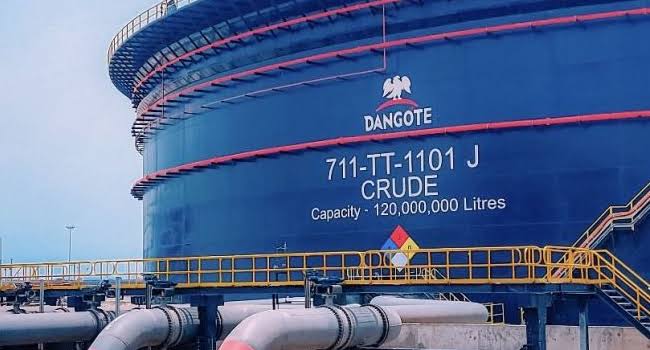The Dangote Refinery price has been deregulated to allow oil marketers, including National Petroleum Company, to purchase fuel.
This was a significant move and a turning point in Nigeria’s fuel supply landscape, as the Nigerian National Petroleum Company Limited (NNPC Ltd) has lost an exclusive purchasing agreement with Dangote Refinery.
This shift, announced on October 9, 2024, allows independent marketers to source fuel directly from Dangote Refinery, thereby fostering competition and potentially altering fuel pricing across the nation.
The deregulation decision comes in the wake of NNPC’s earlier subsidy model, where it procured petrol from Dangote Refinery at N898.78 per litre and resold it to marketers at a subsidized price of N765.99 per litre.
Financial loss
This model led to unsustainable financial losses for NNPC, prompting the transition to a deregulated market. By eliminating the exclusive agreement, NNPC aims to encourage more market players and improve supply dynamics, addressing previous inefficiencies.
New fùel price increase
The deregulated market has led to fuèl price increase from N998 to N1,030 per litre at the NNPCL outlets in Abuja.
A visit to an outlets in the Central Area of Abuja Nigeria’s capital showed that the pump price of petrol had been adjusted upwards to N1,030 per litre.
The increase, however, sparked reactions among consumers.
In September, the NNPC said it was purchasing petrol from Dangote Refinery at N898.78 per litre but, reselling it to marketers at N765.99 per litre, thereby subsidizing the product by N133 per litre.
Between September 15 and 30, NNPC lifted approximately 103 million litres of petrol from Dangote Refinery, a small fraction of the 400 million litres originally planned for that period.
It was gathered from available records that only 2,207 out of the 3,621 trucks sent to the refinery were loaded, resulting in a 26% delivery performance.
With the new framework in place, independent marketers now have the opportunity to negotiate prices directly with Dangote Refinery, which is poised to ramp up its production capacity.
Olusola Akintonde


Comments are closed.